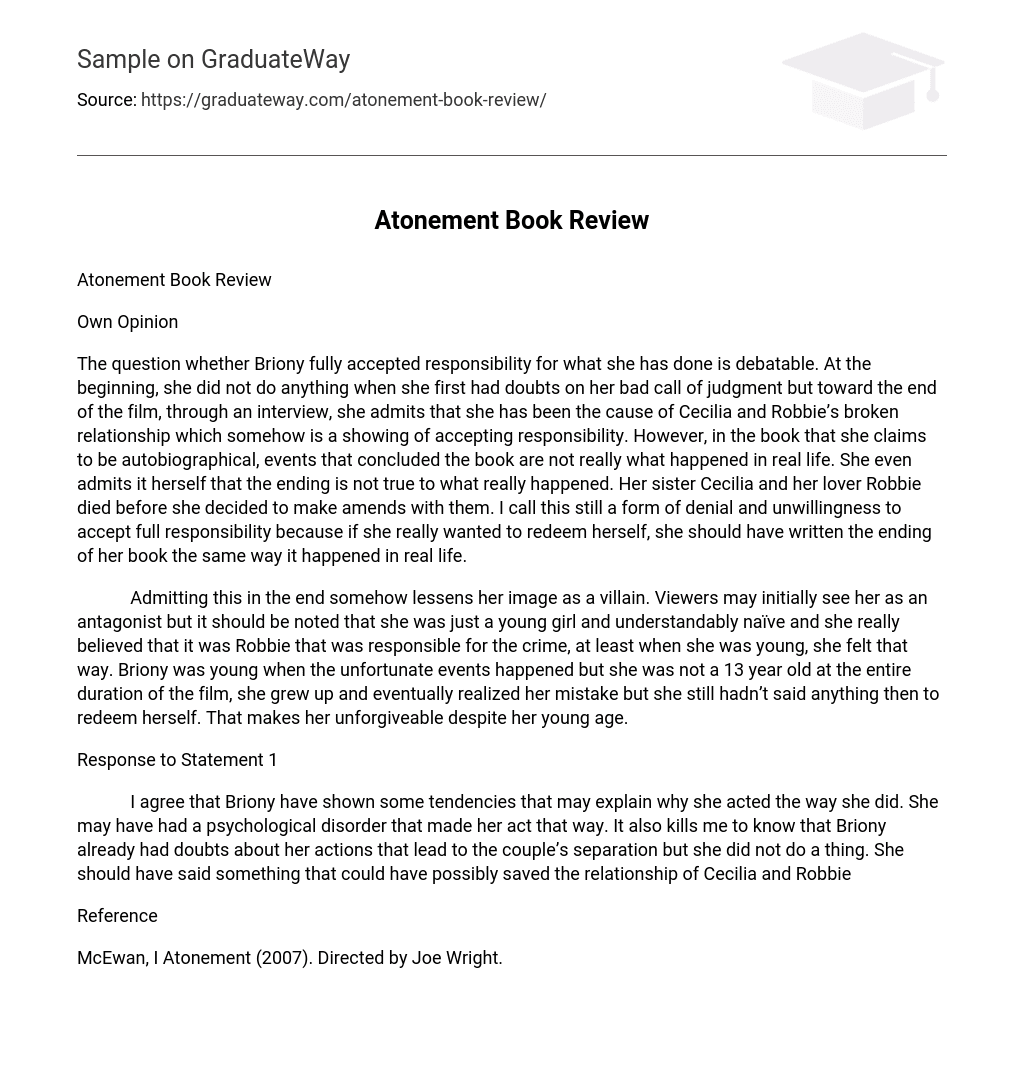Own Opinion
The question whether Briony fully accepted responsibility for what she has done is debatable. At the beginning, she did not do anything when she first had doubts on her bad call of judgment but toward the end of the film, through an interview, she admits that she has been the cause of Cecilia and Robbie’s broken relationship which somehow is a showing of accepting responsibility. However, in the book that she claims to be autobiographical, events that concluded the book are not really what happened in real life. She even admits it herself that the ending is not true to what really happened. Her sister Cecilia and her lover Robbie died before she decided to make amends with them. I call this still a form of denial and unwillingness to accept full responsibility because if she really wanted to redeem herself, she should have written the ending of her book the same way it happened in real life.
Admitting this in the end somehow lessens her image as a villain. Viewers may initially see her as an antagonist but it should be noted that she was just a young girl and understandably naïve and she really believed that it was Robbie that was responsible for the crime, at least when she was young, she felt that way. Briony was young when the unfortunate events happened but she was not a 13 year old at the entire duration of the film, she grew up and eventually realized her mistake but she still hadn’t said anything then to redeem herself. That makes her unforgiveable despite her young age.
Response to Statement 1
I agree that Briony have shown some tendencies that may explain why she acted the way she did. She may have had a psychological disorder that made her act that way. It also kills me to know that Briony already had doubts about her actions that lead to the couple’s separation but she did not do a thing. She should have said something that could have possibly saved the relationship of Cecilia and Robbie
Reference
McEwan, I Atonement (2007). Directed by Joe Wright.





